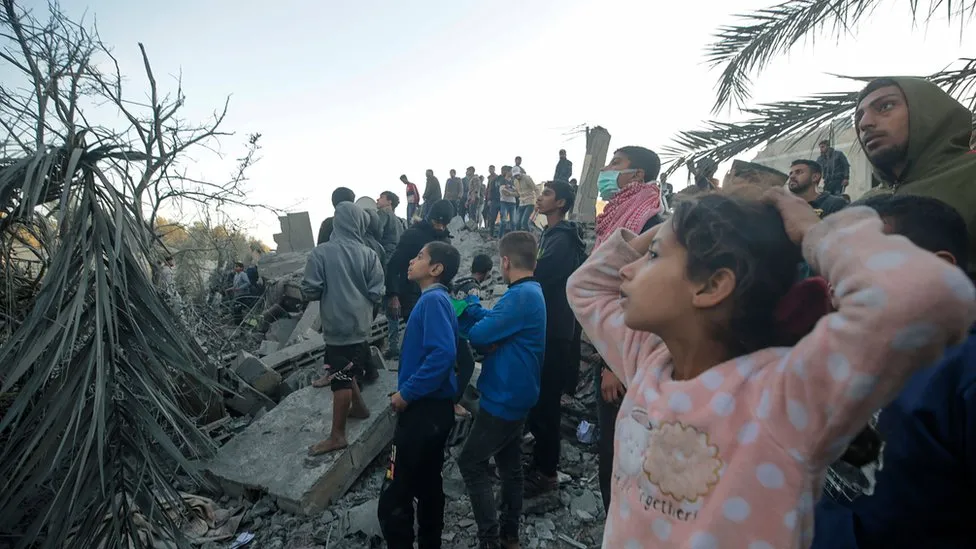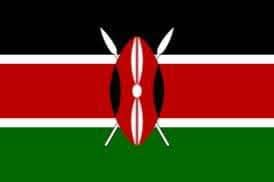
Israeli airstrikes kill at least 24 in Gaza City, say Gaza officials
Reuters
Published: June 25,2024 12:36 PM
Israeli forces killed at least 24 Palestinians in three separate airstrikes early on Tuesday on Gaza City and the dead included a sister of Ismail Haniyeh, the chief of the militant Islamist Hamas group, Gaza health officials and medics said.
Israeli tanks also pressed deeper into western areas of Rafah in the south of the enclave overnight, blowing up homes, residents said.
Two of the Israeli airstrikes hit two schools in Gaza City, killing at least 14 people, medics said. Another strike on a house in the Shati (Beach) camp, one of the Gaza Strip’s eight historic refugee camps, killed 10 others.
The house in Shati belonged to the extended family of Hamas political chief Haniyeh, who is based in Qatar, killing one of his sisters along with other relatives too, family members and medics said.
Haniyeh, who leads Hamas’ diplomacy and is the public face of the group that has been running Gaza, has lost many relatives in Israeli air strikes since Oct. 7, including three sons.
Israel’s military said its forces had targeted militants overnight in Gaza City who had been involved in the planning of attacks on Israel. The militants included some involved in holding hostages captive and some who had taken part in Hamas’ cross-border attack on Oct. 7.
The Israeli Air Force struck two structures “used by Hamas terrorists in Shati and Daraj Tuffah in the northern Gaza Strip. The terrorists operated inside school compounds that were used by Hamas as a shield for its terrorist activities”, the military statement said.
Hamas denies using civilian facilities such as schools and hospitals for military purposes.
The group described the attacks on the two schools and the house in Shati camp as “massacres”.
“We hold the administration of U.S. President Joe Boden responsible for the continued war of genocide against our Palestinian people in Gaza Strip through continuing to offer the Zionist government and its criminal army political and military cover,” Hamas said in a statement.
Separately, the armed wings of Hamas and the allied Islamic Jihad groups said in a joint statement their fighters had fired mortar bombs overnight against Israeli forces in the Yibna
neighbourhood of eastern Rafah.
In nearby Khan Younis, medics said Israeli tank shelling had wounded several people at a tent camp in the west of the city.
HEZBOLLAH CONFLICT
More than eight months into the fighting, international mediation backed by the United States has so far failed to bring a ceasefire agreement. Hamas says any agreement must bring an end to the war, while Israel says it will agree only temporary pauses in fighting until Hamas is eradicated.
Israeli Prime Minister Benjamin Netanyahu said on Sunday the phase of intense fighting against Hamas would end “very soon”, freeing up more forces for deployment on Israel’s northern border with Lebanon, where fighting with Iran-backed Hezbollah has escalated.
Israel’s national security adviser Tzachi Hanegbi said on Tuesday Israel would spend the coming weeks trying to resolve the conflict with Hezbollah and would prefer a diplomatic solution there. Shelling has led to the evacuation of tens of thousands of people on both sides of the Israel-Lebanon border.
Israel’s ground and air campaign in Gaza was triggered when Hamas-led militants stormed into southern Israel on Oct. 7, killing around 1,200 people and seizing more than 250 hostages, according to Israeli tallies.
The Israeli offensive in retaliation has killed almost 37,600 people, according to Palestinian health authorities, and has left the tiny, densely populated Gaza Strip in ruins.
Since early May, fighting has focused on Rafah, on Gaza’s southern edge abutting the border with Egypt, where around half of the enclave’s 2.3 million people have been sheltering after fleeing other areas.
Gaza’s health ministry said on Tuesday that hospitals and medical centres in the enclave were experiencing a severe shortage of medicines and medical supplies due to the continued Israeli offensive, Israel’s control and closure of all crossings and its targeting of the health sector in Gaza.
In particularly short supply are medications needed for emergency, anaesthesia, intensive care and operations, the ministry said in a statement.



This Post Has 0 Comments